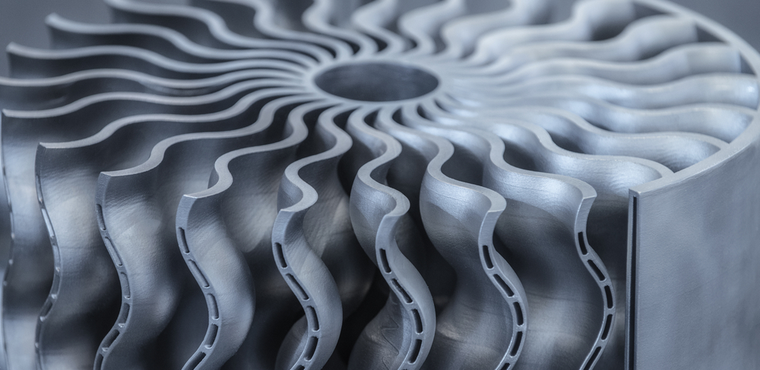
3D Printing Steel
In our laboratory we print on our own metal 3D printers from powder material. The printing process consists of three steps
1. Data preparation
The first step is to properly prepare the print layout. The components are stacked in the virtual print space in the appropriate orientation for each component, the support structures are generated and finally the entire space is divided into thin layers 75µm high, which then serve as the data source for the printer
2. Printing
The second step is the actual printing of the part on the 3D printer with the selected printing material. The print head bonds the metal powder with a liquid binder exactly according to the prepared layers in 2D space, then a new layer of powder is spread over this printed layer and the process is repeated. In this way, a 3D model is gradually created of all the components included, layer by layer.
3. Sintering
The freshly printed parts are finally heated to a high temperature in a special furnace under protective gas, where the metal particles are fused into one piece. The temperature in the furnace reaches up to 1380°C and the part spends around 8 hours in the furnace.
3D metal printing applications
- Fully functional prototypes
- Manufacturing tools
- Tools such as moulds or inserts
- Hard covers
- Spare parts
- Complex parts
What 3D metal printing offers
- Mechanical properties similar to those of cast parts
- Lightweight metal parts
- Shorter production cycles
- Economical and fast production of complex parts
- Compared to traditional approaches, a more affordable method
- Possibility of additional surface treatments as for castings or workpieces
